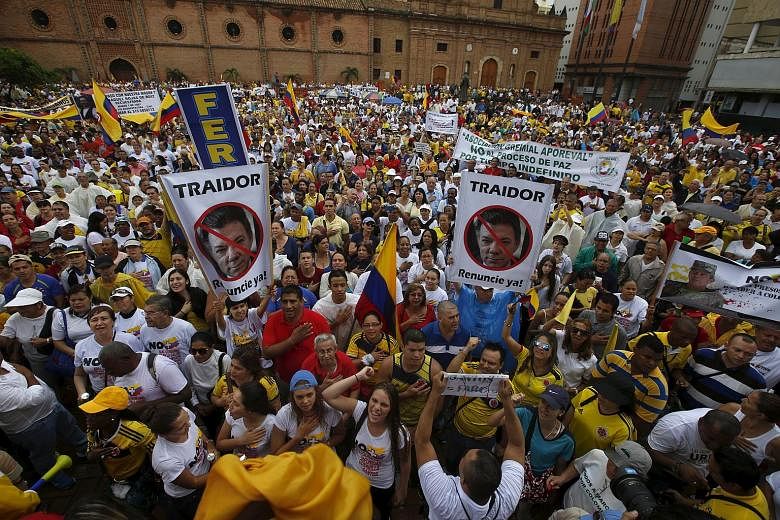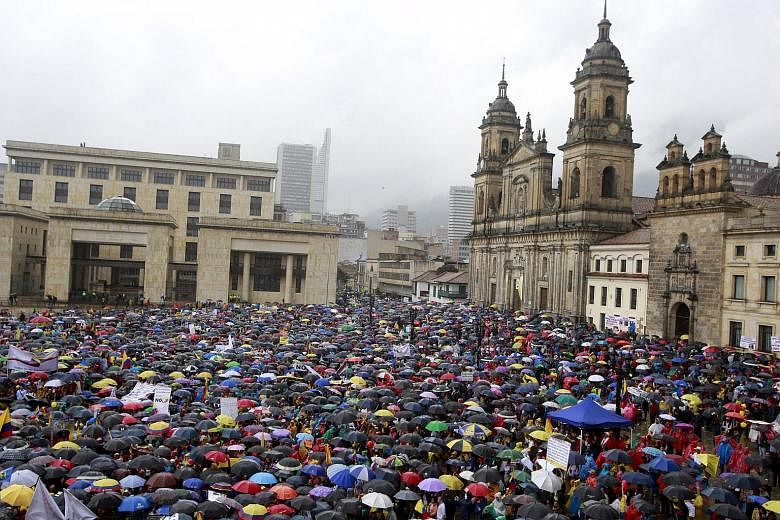BOGOTA (AFP) - Thousands of Colombians protested in more than 20 cities across the country on Saturday (April 2) against President Juan Manuel Santos and his government's peace process with the FARC guerrillas.
It comes just days after Bogota launched peace negotiations with the country's second-biggest guerrilla group, the National Liberation Army (ELN), setting its sights on a total end to a bloody half-century conflict.
Large crowds refused to be put off by heavy rain in some cities, with many of the demonstrators decked out in the yellow, blue and red of the Colombian flag.
The protests were called by the Democratic Center party of former president Alvaro Uribe, who has voiced consistent opposition to negotiations with the Marxist FARC that appear to be reaching a successful conclusion after more than three years of talks.
"Traitor resign now!" and "No more impunity!" were among the banners on show as large crowds swarmed through city centers.
"This protest is a general dissent against the government of President Santos. We do not want impunity in the peace processes. We are tired of so many lies and bad economic management, taxes and inflation," Mr Francisco Santos, a former vice-president, told AFP.
The biggest turnouts were in the capital Bogota and Medellin, the hometown of Uribe.
Police said there was no trouble.
Accords bringing in the government and the FARC and ELN would establish peace between the main remaining players in a conflict which over the decades has drawn in right- and left-wing guerrillas, government troops and drug trafficking gangs.
Starting as a peasant uprising in the 1960s, the conflict has killed more than 260,000 people, uprooted 6.6 million people and left a further 45,000 missing.


